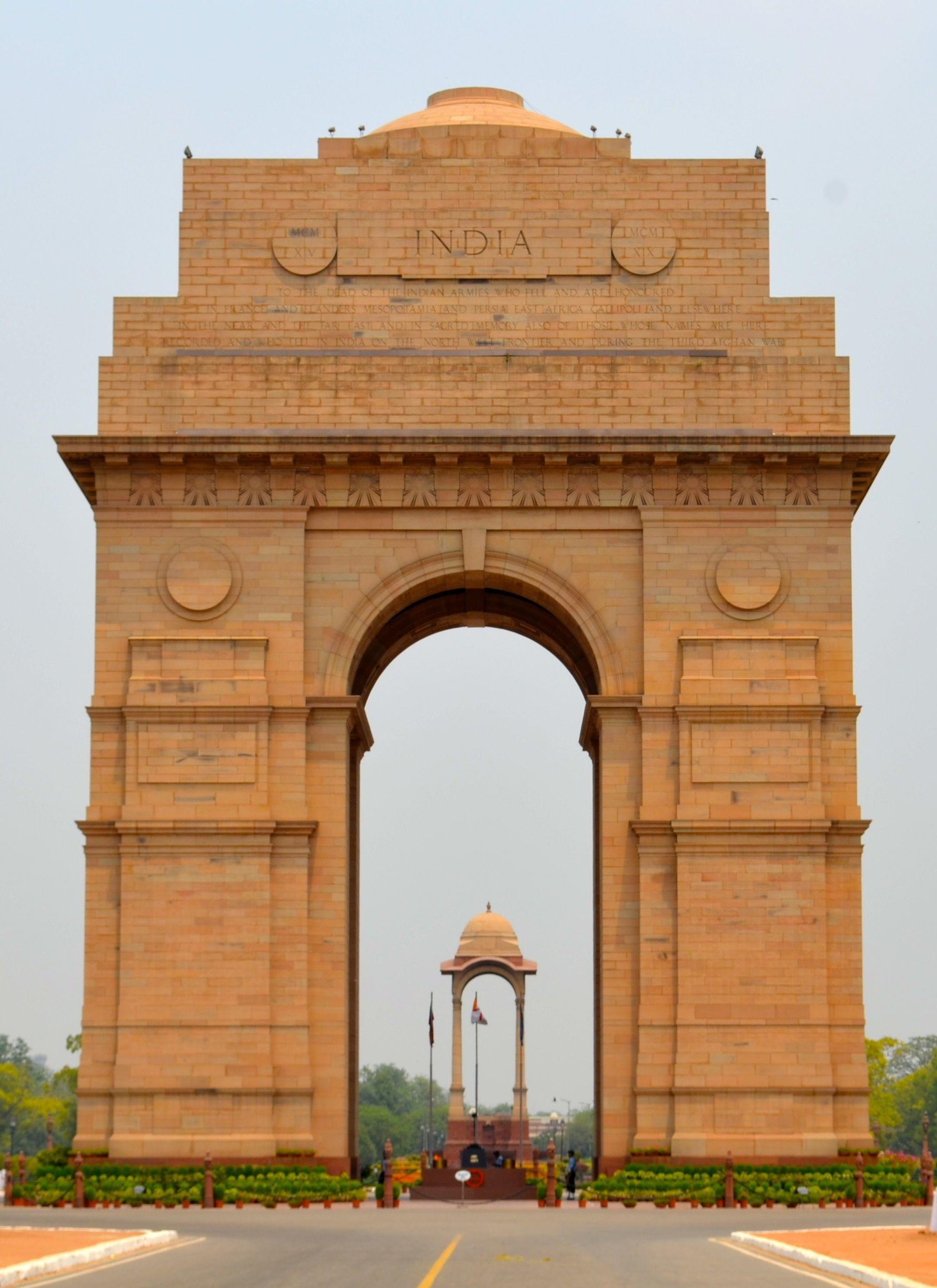
| G20 : An important milestone in the history of India G20 is an important milestone in the history of the nation. For one, it has come at a time when the world seems to be cracking from the inside. Amidst all the uncertainties that grip it, the Presidentship of G20 with India cannot come at a more opportune time. And therefore one was also witness to the unprepared meeting between Sec state Blinken and Russia’s foreign minister Mr. Lavrov. PM Modi and the country have also got this unique opportunity to play its role as host of the G-20 as part of a campaign to rally domestic political support and portray India as a geopolitical heavyweight, particularly among countries in the global south, a term used to describe the parts of Asia, Africa, and Latin America that rely on wealthier nations for economic support. As U.S.-China relations have frayed, India has positioned itself as a key player in global supply chains and international diplomacy. Thus the G20 presidency offers India a real official place in global and international relations and crisis. Background The G20 was founded in 1999 after the Asian financial crisis as a forum for Finance Ministers and Central Bank Governors to discuss global economic and financial issues. The G20 was upgraded to the level of Heads of State/Government in the wake of the global economic and financial crisis of 2007, and, in 2009, was designated the “premier forum for international economic cooperation”. The G20 Summit is held annually, under the leadership of a rotating Presidency. The G20 initially focused largely on broad macroeconomic issues, but it has since expanded its agenda to inter-alia including trade, sustainable development, health, agriculture, energy, environment, climate change, and anti-corruption.I The Group of Twenty (G20) comprises 19 countries (Argentina, Australia, Brazil, Canada, China, France, Germany, India, Indonesia, Italy, Japan, Republic of Korea, Mexico, Russia, Saudi Arabia, South Africa, Türkiye, United Kingdom and United States) and the European Union. The G20 members represent around 85% of the global GDP, over 75% of the global trade, and about two-thirds of the world population. India holds the Presidency of the G20 from 1 December 2022 to 30 November 2023. The G20 Presidency steers the G20 agenda for one year and hosts the Summit. The G20 consists of two parallel tracks: the Finance Track and the Sherpa Track. Finance Ministers and Central Bank Governors lead the Finance Track while Sherpas lead the Sherpa Track after Finance Track. The G20 process from the Sherpa side is coordinated by the Sherpas of member countries, who are personal emissaries of the Leaders. Finance Track is led by Finance Ministers and Central Bank Governors of the member countries. Within the two tracks, there are thematically oriented working groups in which representatives from the relevant ministries of the members as well as from invited/guest countries and various international organizations participate. The Finance Track is mainly led by the Ministry of Finance. These working groups meet regularly throughout the term of each Presidency. The Sherpas oversee negotiations over the course of the year, discussing agenda items for the Summit and coordinating the substantive work of the G20. In addition, there are Engagement Groups that bring together civil societies, parliamentarians, think tanks, women, youth, labor, businesses, and researchers of the G20 countries. The Group does not have a permanent secretariat. The Presidency is supported by the Troika – previous, current and incoming Presidencies. During India’s Presidency, the troika will comprise Indonesia, India, and Brazil, respectively. Ref: [https://www.g20.org/en/about-g20/] New Delhi Summit 2023: The 18th G20 Heads of State and Government Summit will take place on 9th-10th September 2023 in New Delhi. The Summit will be a culmination of all the G20 processes and meetings held throughout the year among ministers, senior officials, and civil societies. A G20 Leaders’ Declaration will be adopted at the conclusion of the New Delhi Summit, stating Leaders’ commitment towards the priorities discussed and agreed upon during the respective ministerial and working group meetings. The Foreign Ministers meet outcomes The G20 meeting in India has come at a time when the world is sharply polarised. Therefore getting all the 20 ministers on one platform and issuing a joint statement was a challenge right from the beginning. Yet there were expectations that India being close to both sides, US and Russia will be able to bring consensus. But that did not happen as the Ukraine war has completely done year and has pained all sides. The foreign ministers of the world’s 20 largest economies failed to reach a consensus on a wide-reaching agenda addressing poverty, corruption and counterterrorism because of persistent disagreements over the war in Ukraine. U.S. Secretary of State Antony Blinken, who for the first time since the conflict began a year ago met face-to-face with his Russian counterpart on the event’s sidelines, said the gathering was “marred” by Moscow’s “unprovoked and unjustified war.” While Russian Foreign Minister Sergei Lavrov accused the West of turning the meeting into a “farce.” In a document summarizing the meeting, the Indian government said “most members strongly condemned the war in Ukraine and stressed it is causing immense human suffering and exacerbating existing fragilities in the global economy.” It noted, however, that there were “other views” as well as a recognition that “the G-20 is not the forum to resolve security issues.” The differences meant the meeting did not result in a joint communique signed by all members of the G-20, whose countries account for 85 percent of the world’s economic output and two-thirds of its population. The same dispute thwarted a consensus at a meeting last week of G-20 finance ministers — an outcome Modi sought to avoid by appealing to diplomats to draw on the inspiration of Buddha and Mohandas Gandhi, and “focus not on what divides but on what unites us”. That said, the meeting did bring the two opposite foreign ministers for a 10-minute discussion apparently at the behest of host country India and EAM Jaishankar. Secretary of state Antony Blinken and Russian foreign minister Sergey Lavrov met and spoke for the first time ver since the Ukraine war started. The U.S. official said Blinken used the brief conversation on the sidelines of the G-20 meeting in New Delhi to make three points to Lavrov: that 1. the U.S. would continue to support Ukraine in its defense against Russia for as long as it takes to end the war; 2. that Russia should rejoin the New START nuclear treaty; and 3. that Russia should release imprisoned American Paul Whelan. During their exchange, Blinken stressed Washington’s support for a peaceful resolution to the war in Ukraine that maintains the country’s territorial integrity, said a senior State Department official, who spoke on the condition of anonymity to discuss sensitive conversations. The United States, Russia and China have all sought to use the gathering as a way to bolster their strategies for ending the conflict. The West has stressed the importance of helping Ukraine win back territory seized by Russia, while Moscow and Beijing have called on outside countries to stop what they view as an escalation of the conflict. Conclusion While the Delhi summit held at the end of February could not get a consensus India did play a good host and was instrumental in bringing the two opposite polarities face to face. Some of the western leaders like the right-wing Italian PM Melony requested India to play a major role in diffusing the crisis. While some western nations have been critical of India’s so-called neutral stance, India also got the opportunity to speak to all of them and explain its position in clear terms and its dependency on Russian oil for its energy needs. Thus India got a very good platform to speak and clarify its position. This will enable to put India’s position in the correct perspective and diffuses any ambiguity and rumoir mongering by hostile nations. PM Modi has got his stature enlarged by playing host to 20 countries. Similarly, the country has also benefitted by good all-around promotion through various meetings and workshops in a different part of the country. This will indeed help the country in projecting itself as a leading world power economically and will help in promoting tourism in days to come. The world-class infrastructure that india has developed be it airports or Railways or roadways will surely be something that all the delegates must have watched. The G20 summit can be termed as the pedestal and stepping stone for India’s higher ambitions and role for international politics which has been always marred by China and other nations. Note: Inputs have been taken from other published media also besides original thoughts. We are also grateful to the official G20 website for information. |

